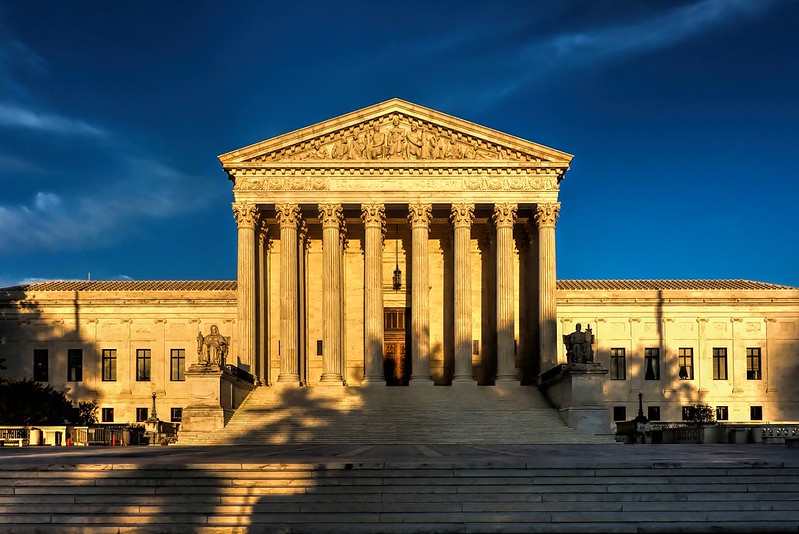Supply chain bottlenecks and shipping issues are leaving some farmers uneasy during harvest. Greg...
Agriculture Waits for Big Decisions on Supreme Court Cases

Some sectors of the ag industry are eagerly watching the Supreme Court as the justices decide whether to hear petitions filed over housing standards for sows, the summertime use of E-15 ethanol blend, and wetlands regulation. The court is scheduled to discuss the petitions and announce its decisions in the very near future.
All of these cases face stiff odds, given that the court only accepts for review a fraction of the petitions it receives:
E-15 case: A petition by Growth Energy seeks review of an appeals court decision that found the Clean Air Act does not authorize summertime use of E15. But the issue may be too narrow for the court to take up.
Prop 12: A petition by the National Pork Producers Council and American Farm Bureau Federation seeks to block enforcement of animal housing standards under California’s Proposition 12. The high court rejected an earlier challenge to the law.
Wetlands: The last petition of interest was filed by Idaho landowners who want the court to look again at federal wetlands regulation. The court may be loath to address the issue given that EPA and the Army Corps of Engineers are writing a new WOTUS rule defining federal jurisdiction under the Clean Water Act.
EDITOR’S TAKE:
Each of the cases listed in this article could have great consequences for agriculture. The E-15 case, if not heard by the court, could dramatically reduce the demand for ethanol and, thus, less corn would be required. Absent approval by the Supreme court, it would require a congressional fix, which could take years, if ever.
The Prop 12 petition, you may recall, has been covered in prior editions of the AIR. It basically says that absent Supreme court blocking the enforcement, California standards for housing animals would have to be followed by anyone wishing to sell those types of livestock and meat in the state. So, we either add billions in additional expense to farmers/ranchers, or California consumers will not have the products and will pay exorbitant prices at the grocery store.
The wetlands case challenges the definition of Waters of the U.S. As the article points out, it is already under review and rewrite by the EPA. Farmers/ranchers feel like they are on the end of a yo-yo string when it comes to this issue. The law and regulations have over time been narrowly defined, very broadly defined, revised to a more moderate level, and now who knows what EPA is likely to do. With all that said – this could be a very big issue for agriculture again.
Taken separately, or together, these issues could have severe consequences for farmers/ranchers across the U.S. We will be keeping a close eye on what the Supreme Court decides and let you know not only what that is, but what it could mean for agriculture moving forward.
We always want you to be informed about issues which impact the farm/ranch customers in your area!








